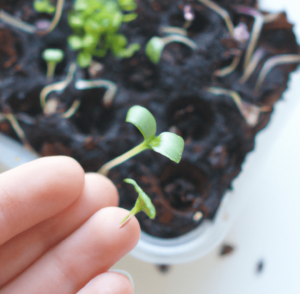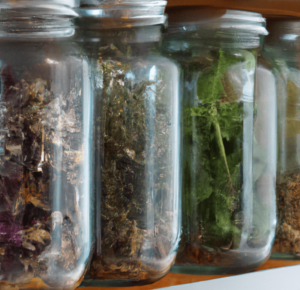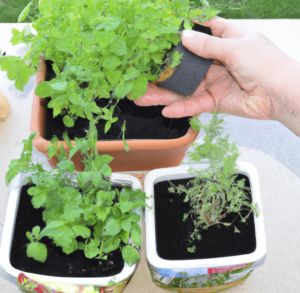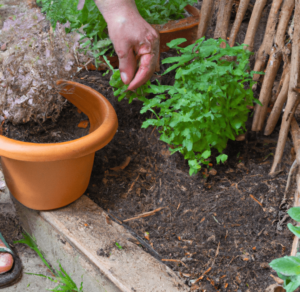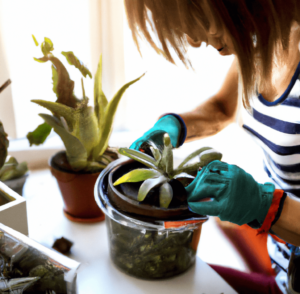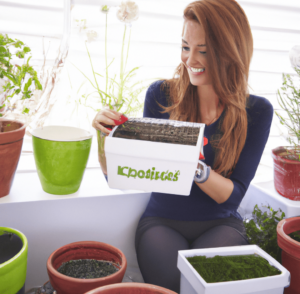Organic gardening is a method of growing plants and vegetables that emphasizes the use of natural techniques and organic materials. It is an environmentally-friendly approach to gardening that aims to produce healthy, chemical-free food while also promoting the health and sustainability of the soil and ecosystem. In this article, we will explore the principles and practices of organic gardening, including the use of organic matter and the importance of maintaining healthy soil. We will also discuss the benefits of choosing organic produce and the role of organic gardening in the larger food system.
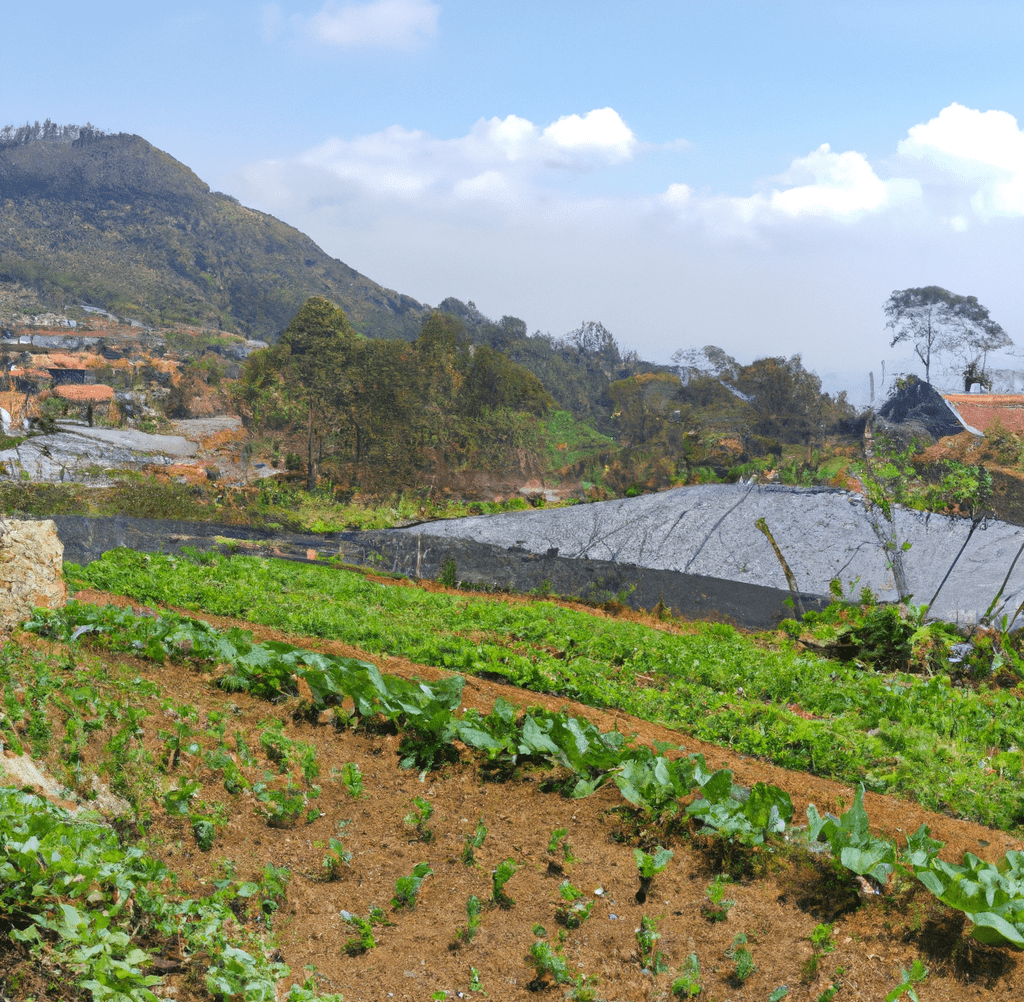
Organic Gardening
Organic gardening is founded on the principles of sustainability, ecology, and care for the environment. It involves the use of natural techniques and materials to grow plants and vegetables, rather than relying on synthetic pesticides, fertilizers, and other chemicals.
Organic matter, such as compost and manure, is used to enrich and nourish the soil, rather than synthetic fertilizers which can strip the soil of its nutrients and lead to soil erosion. Organic gardeners also use techniques such as crop rotation, mulching, and companion planting to maintain soil health and prevent pests and diseases
Food
One of the primary motivations for organic gardening is the desire to produce healthy, chemical-free food for oneself and one’s family. Organic produce is grown without the use of synthetic pesticides and fertilizers, which can contain harmful chemicals that can be absorbed by the plant and consumed by humans.
Organic produce is also often fresher and tastier, as it is grown using natural techniques and is often sold locally rather than being shipped long distances. Choosing organic produce not only benefits your own health, but also supports sustainable and environmentally-friendly farming practices.
Soil
Healthy soil is vital for the success of any garden, and is especially important in organic gardening. The soil is the foundation of the garden ecosystem, providing nutrients and support for the plants and serving as a home for a diverse community of microorganisms.
Organic gardeners strive to maintain and improve the health of the soil through the use of organic matter, composting, and minimal disturbance of the soil. By caring for the soil, organic gardeners can create a thriving and sustainable ecosystem in their gardens.
Organic Gardening
Organic gardening is a method of growing food using natural techniques and materials. It involves the use of organic matter, such as compost and mulch, to enrich the soil and provide nutrients for plants. This approach to gardening does not rely on the use of synthetic chemicals or genetically modified organisms.
One of the main goals of organic gardening is to create a sustainable and self-sufficient ecosystem in the garden. This means using techniques that promote healthy soil, conserve resources, and support a diverse array of plant and animal life.
If you’re interested in learning more about organic gardening, there are many resources available online. Websites such as Organic Gardening and The Organic Gardener provide tips and guidance on starting and maintaining an organic garden. You can also find local gardening groups or classes in your area to connect with other organic gardeners and learn from their experiences.
How to Start Your Own Organic Garden?
Are you interested in growing your own organic produce but don’t know where to start? Organic gardening is a sustainable and environmentally-friendly way to grow plants and vegetables, and it can be a rewarding hobby for beginners and experienced gardeners alike. In this article, we will explore the steps and considerations for starting your own organic garden, including choosing a location, preparing the soil, and selecting plants. We will also discuss the benefits of organic gardening and the role of organic matter in maintaining healthy soil.
Organic Gardening
Organic gardening is a method of growing plants and vegetables that emphasizes the use of natural techniques and organic materials. It involves the use of organic matter, such as compost and manure, to enrich and nourish the soil, rather than synthetic fertilizers which can strip the soil of its nutrients and lead to soil erosion. Organic gardeners also use techniques such as crop rotation, mulching, and companion planting to maintain soil health and prevent pests and diseases.
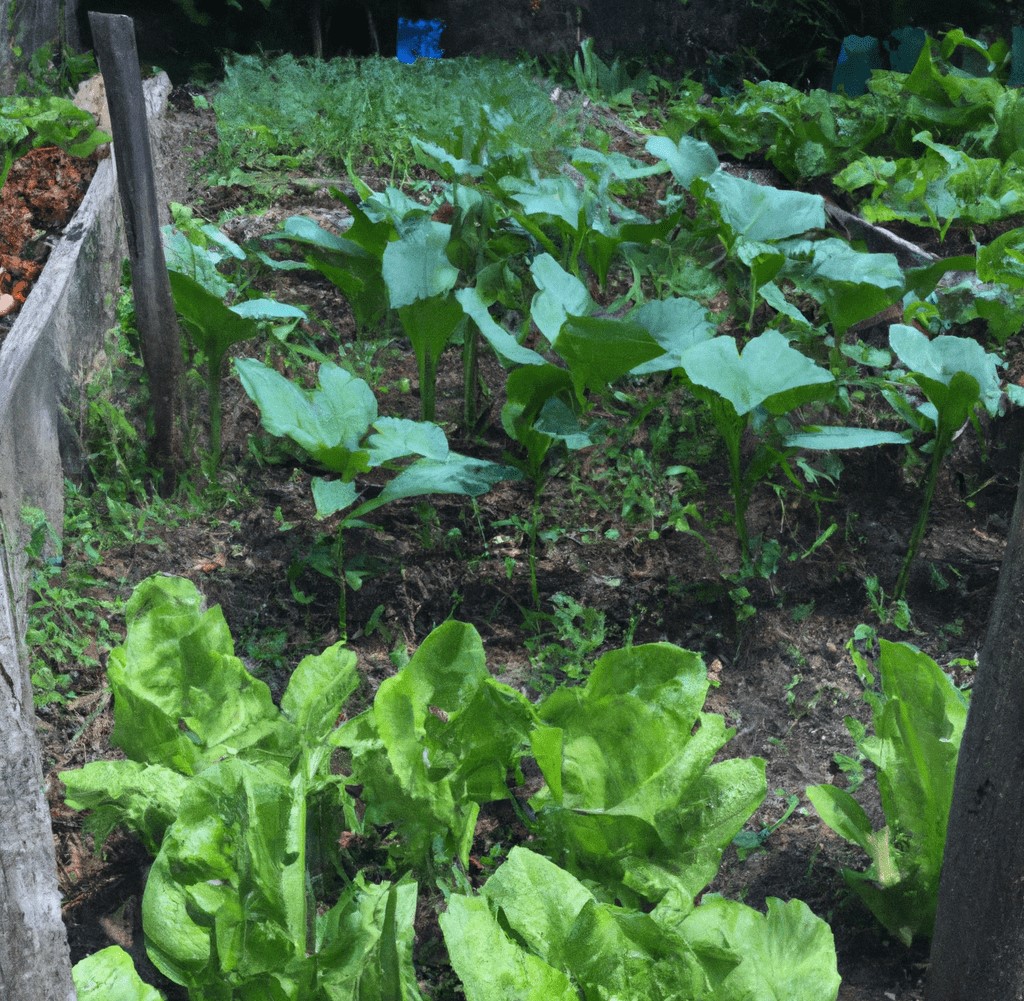
Food and Soil
One of the primary motivations for starting an organic garden is the desire to produce healthy, chemical-free food for oneself and one’s family. Organic produce is grown without the use of synthetic pesticides and fertilizers, which can contain harmful chemicals that can be absorbed by the plant and consumed by humans.
Organic produce is also often fresher and tastier, as it is grown using natural techniques and is often sold locally rather than being shipped long distances. Choosing organic produce not only benefits your own health, but also supports sustainable and environmentally-friendly farming practices.
Before you start planting, it is important to prepare the soil for your organic garden. Healthy soil is vital for the success of any garden, and is especially important in organic gardening. The soil is the foundation of the garden ecosystem, providing nutrients and support for the plants and serving as a home for a diverse community of microorganisms.
To prepare the soil for your organic garden, you will need to assess the pH and nutrient levels of the soil and add organic matter as needed. This may involve adding compost, manure, or other organic matter to the soil to improve its structure and fertility. It is also a good idea to test the soil for pests and diseases and take steps to address any issues.
Choosing a Location for Organic Gardening
When choosing a location for your organic garden, consider the amount of sunlight and water the site receives, as well as the type of soil. Most vegetables and herbs need at least six hours of direct sunlight per day, so be sure to choose a site that receives plenty of sunshine.
You will also need to consider the availability of water, as plants will need to be watered regularly. If you do not have access to a hose or irrigation system, you may want to choose a site that is closer to a water source.
Selecting Plants in Organic Gardening
When selecting plants for your organic garden, consider the climate and growing conditions in your area. Choose plants that are well-suited to the amount of sunlight, water, and temperature in your location.
It is also a good idea to start with easy-to-grow plants, such as lettuce, tomatoes, peppers, and herbs, as these are often more forgiving for beginners. As you gain experience, you can try more challenging plants.
The Importance of Insects in Organic Gardening
Insects play a vital role in gardening and the overall ecosystem. In the garden, insects such as bees and butterflies help pollinate plants, which is essential for the reproduction and growth of many flowering plants. Soil-dwelling insects, such as earthworms and beetles, help to break down organic matter and improve the structure and fertility of the soil.
Insects are also a critical part of the food chain, serving as a food source for birds, reptiles, and other animals. Without insects, the delicate balance of the ecosystem could be disrupted, leading to negative impacts on plant and animal populations.
Therefore, it is important to consider the role of insects in the garden and strive to create a habitat that supports their presence and health. This can be achieved through the use of native plants, the provision of water and shelter, and the avoidance of pesticides and other harmful chemicals. By cultivating a diverse and healthy insect population in the garden, we can help to support the overall health and resilience of the ecosystem.
Lawn Care and Maintenance in Organic Gardening
Lawns are an important part of many gardens and landscaped areas, providing a visually pleasing and functional space for outdoor activities. However, the maintenance of a lawn can also have an impact on the environment and the health of the people who use it.
Agriculture plays a significant role in the creation and maintenance of lawns. Grass is a crop that is grown specifically for use on lawns, and it requires regular watering, fertilizing, and mowing to keep it healthy and attractive. Pesticides may also be used to control pests and diseases that can damage the grass. It is important to use these products responsibly, as they can have negative impacts on the environment if they are misused or overused.
When applying pesticides and other chemicals to a lawn, it is important to follow the label instructions carefully and to use the minimum amount necessary to achieve the desired result. Pesticide residues can remain in the soil and be taken up by other plants, potentially impacting the health of the overall garden ecosystem.
It is also important to consider the impact of lawn care practices on the environment. Watering a lawn heavily can lead to runoff, which can carry fertilizers and other chemicals into local waterways, potentially causing harm to aquatic life. Using native plants and grasses, practicing proper irrigation techniques, and reducing the overall size of the lawn can all help to reduce the environmental impact of lawn care.
Food and Vegetable
Organic Gardening: Organic gardening is a method of growing plants that involves the use of natural materials and techniques to nourish the soil and promote the growth of healthy plants. This type of gardening does not rely on the use of synthetic chemicals or genetically modified organisms (GMOs) in the production of food products. Instead, it relies on practices such as composting, crop rotation, and the use of natural pest control methods to maintain healthy soil and grow nutritious vegetables.
Product: In the context of food production, a product refers to a finished item that is ready for consumption. This can include a variety of items, such as vegetables, fruits, grains, meats, and dairy products. These products are typically grown, raised, or produced through various methods, including conventional agriculture, organic farming, and aquaculture.
Vegetable: A vegetable is a type of plant that is grown for its edible parts, such as roots, stems, leaves, flowers, or seeds. Vegetables are a key source of nutrients and are an important part of a healthy diet. Some common vegetables include broccoli, cabbage, carrots, lettuce, tomatoes, and potatoes.
Soil: Soil is a natural resource that is made up of organic matter, minerals, water, and air. It is a vital component of agriculture, as it provides the nutrients and support necessary for plants to grow. Healthy soil is rich in organic matter, which helps to improve its structure, water-holding capacity, and fertility. It is also home to a diverse community of microorganisms that help to break down organic matter and release nutrients for plants to use.
Agriculture: Agriculture is the cultivation and production of plants and animals for food, fuel, and other products. It is a vital sector of the global economy and is responsible for the majority of the world’s food supply. There are many different types of agriculture, including traditional, intensive, and organic farming methods, as well as aquaculture, which involves the cultivation of fish and other aquatic organisms.
Soil in Organic Gardening
Soil is an essential element in any vegetable garden, and this is especially true in organic gardening. In organic gardening, the goal is to create a healthy and balanced ecosystem in the soil that will support the growth of strong and nutritious plants. This means using practices and techniques that help to build and maintain the soil’s fertility and structure, rather than relying on synthetic chemical fertilizers and pesticides.
One of the keys to building healthy soil in an organic garden is the incorporation of organic matter. Organic matter is any material that was once living, such as leaves, grass clippings, and compost. Adding organic matter to the soil helps to improve its structure, increase its water-holding capacity, and provide a source of nutrients for plants. There are many different types of organic matter that can be used in an organic garden, and choosing the right product for your specific needs will depend on the soil type and the plants you are growing.
Some common products used for adding organic matter to the soil in an organic garden include compost, well-rotted manure, and cover crops. These materials can be added to the soil directly, or they can be used to create a compost heap or bin, where they will break down over time into a nutrient-rich soil amendment.
In addition to adding organic matter to the soil, there are several other practices that can help to improve its quality and support the growth of healthy plants in an organic garden. These include mulching, crop rotation, and proper watering techniques. By following these practices and using organic techniques and products, you can create a thriving and sustainable vegetable garden that produces nutritious and delicious produce.
Bottom Line: Organic Gardening
Starting an organic garden can be a rewarding and fulfilling hobby that allows you to produce healthy, chemical-free food for yourself and your family. By following these steps and considering the factors discussed in this article, you can successfully start your own organic garden and enjoy the benefits of sustainable and environmentally-friendly organic garden.
If you’re interested in organic gardening, you may also be interested in no-dig gardening and permaculture gardening.


